Thank you to the California Strawberry Commission for showing us the beauty of farming, allowing us to share our stories and for sponsoring this post.
I remember walking into the freezer area in the back of my grandfather’s corner market and standing next to the whole pigs that dangled by their feet from huge, silver hooks attached to the ceiling. I was 7-years-old, yet I knew that they represented hours of work for my grandfather and, consequently, a stable upbringing for his family.
This is my first memory looking at hard work square in the eyes, so to speak. It was cold; it was dirty and, at times, uncomfortable. But in those days I also learned that hard work – the kind you did with your hands – was a source of pride and love, too. Every day my grandparents (and eventually my mom and uncle) went to work at the family business. They had employees. Typically Spanish-speaking and immigrants, they smothered me with adoration and treats when my brother and I pranced into the aisles donning our private school uniforms. Every person in that market worked hard and loved harder.
Somewhere in my pursuit of the American dream though, this type of hard work became difficult to look at and appreciate. Was it pity I felt? Shame? My dad went to work in a suit and tie, and my husband now does too, further diminishing my appreciation of blue collar, “unskilled” labor. Having brown skin in a white, middle-class life made me even more compelled to dispell the stereotype; not every Latino in Southern California does manual labor. This isn’t easy for my to say. Things were different back then. Even still, I’m ashamed to admit my tendency to look away from hard work.
So, when I was invited by the California Strawberry Commission to tour the strawberry farm of a Latino owner, I was immediately curious. How did this Latino come to own a farm in California? How did he feel about his contribution to the agricultural workforce that is vastly populated by Latinos? What did he think of the fruit he was growing, immigrant policies and empowerment of the community? I went to Monterey on California’s central coast armed with sincere questions and an open mind…
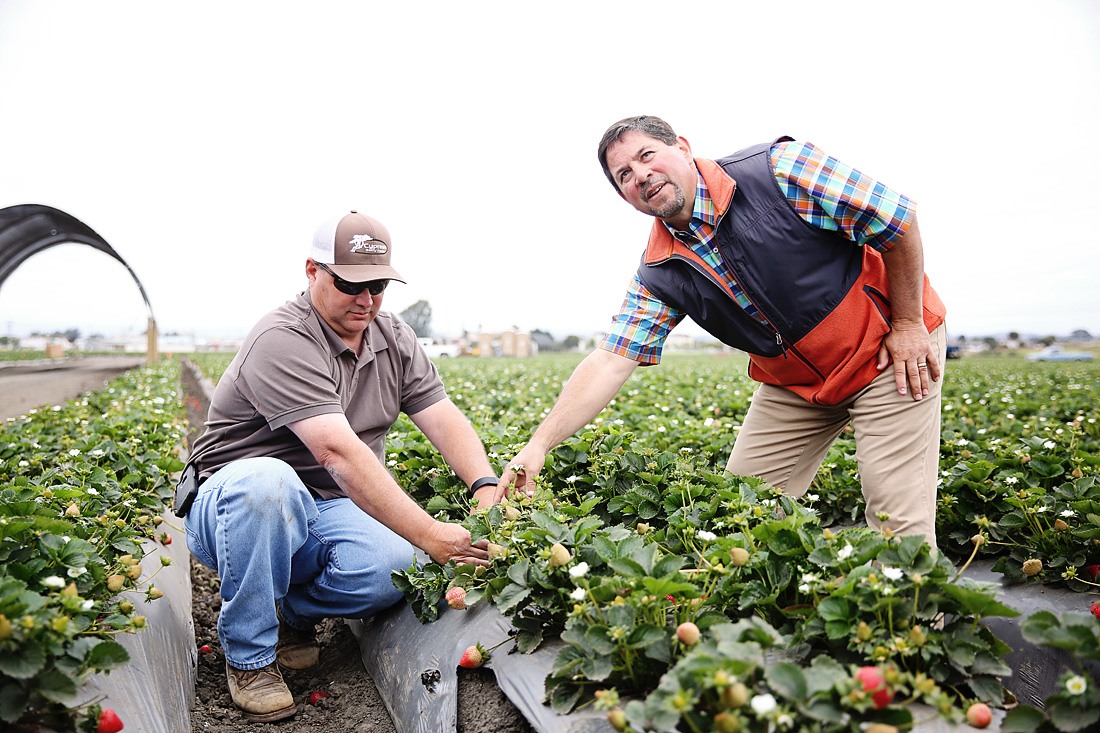
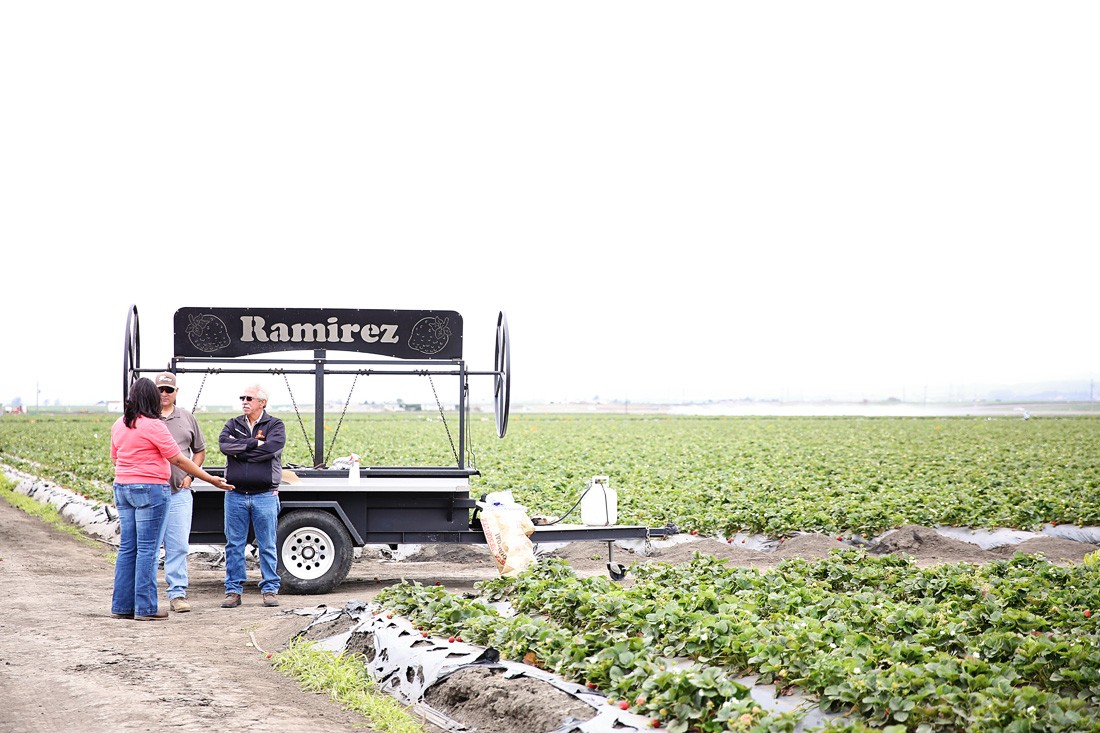
Connecting City and Farm Families
After meeting in Monterey and being hosted to a delicious dinner (with plenty of strawberries!), our group woke up early to visit the fields of Victor Ramiez, owner of BayView Farms, as well as members of the California Strawberry Commission responsible for labor force education and safety.
Mr. Ramirez is a third generation farmer and grew up working in the fields with his parents and six siblings. Eventually, he came to own a harvesting company with his brother, helping to organize a labor workforce for other farmers. In 1999, he returned to his passion of farming when he opened BayView with a mission of growing the best berries in the world.
I learned that California strawberry farms create 70,000 jobs and invest 97 cents of every farm dollar back into the community. Also, strawberry farming has provided Latinos more ownership opportunities than any other major crop, with Latinos now comprising two-thirds of the strawberry growers in California. 25% of those owners started as field workers.
I talked to Mr. Ramiez about his workforce, his commitment to worker safety and the environment of their community. We learned about the pioneering global breakthroughs that California Strawberries has in organic farming, resource conservation, and pest management practices. We had an insightful conservation on the impact of immigration policies on a farmer’s ability to actually procure their harvest and, when I told the team how my kids and I studied Cesar Chavez this year, they guessed that if Chavez were around today, he would be focused on issues of immigration.
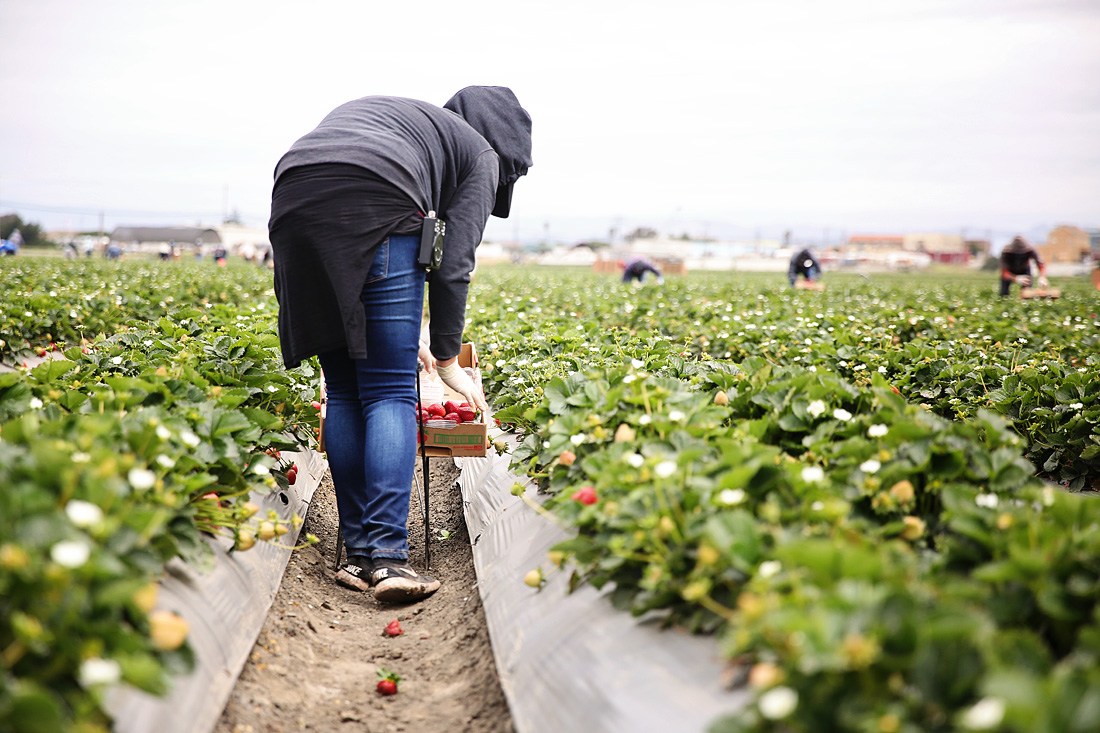
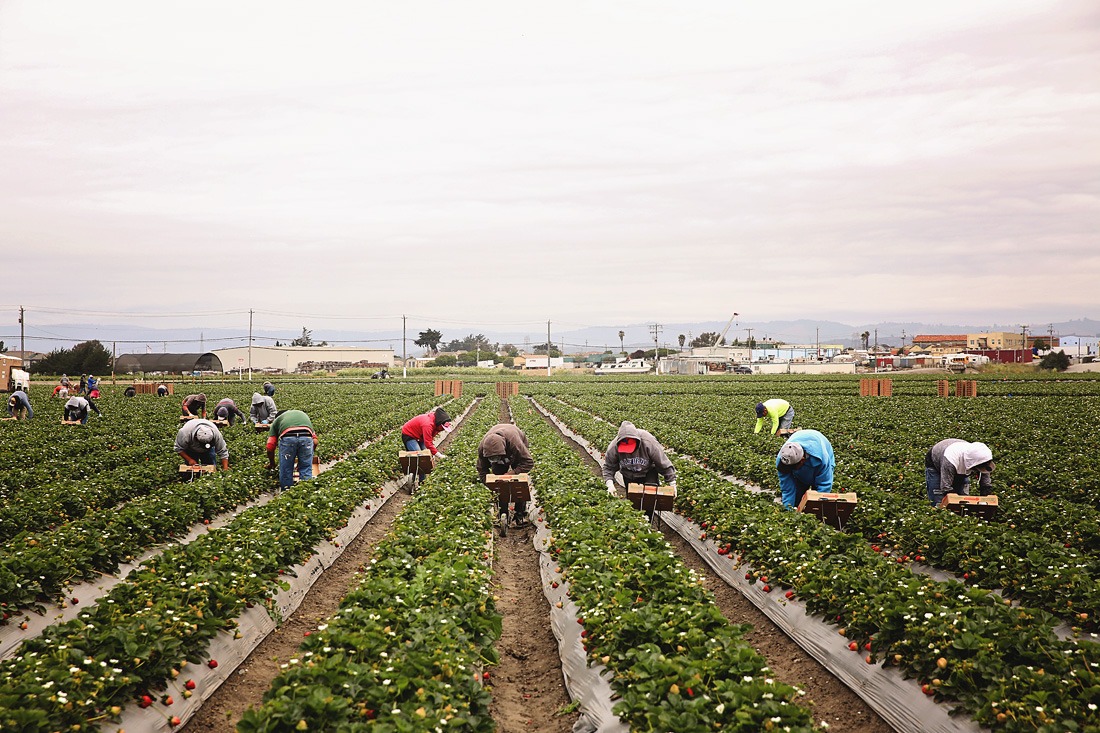
California Strawberries: A Labor-Intensive Fruit
Strawberries are a labor intensive fruit. They have to be manually planted, weeded and harvested, making a farmer’s workforce incredibly important. By Ramirez’s standards, his workers are paid fairly and work in safe conditions because, without them, his farm wouldn’t succeed. But it was something Mr. Ramirez said that really hit home and prompted me to think critically about my perceptions of hard, manual work. He said, “I don’t know why they call this “unskilled labor”. My team is able to harvest the fruit, pack perfect cartons and have the crates off to American families within hours. That takes skill to me.”
This farmer knows skilled work better than anyone and looks at it square in the eyes every single day. He was proud of where he came from, perhaps something I had forgotten how to do, and I left his farm feeling empowered.
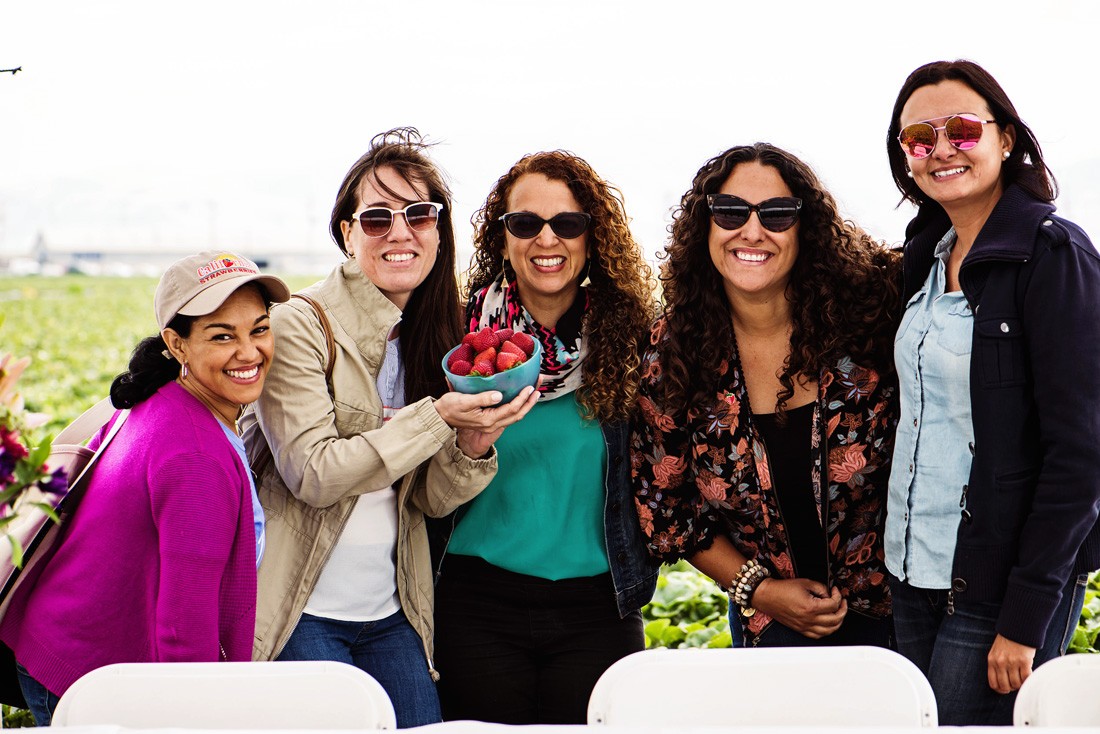
I brought home a few cartons of California strawberries from Monterey and immediately recreated a Strawberry Mango Salsa we had been served while there. Over our snack, I told my babies about the health benefits of strawberries, which made no difference to them because they love strawberries regardless, but I also talked to them about the farm workers who had picked the fruit just a few hours before and the Latino farmer who was once a little boy in the fields and was now the boss. They were enchanted by his story.
We talked about how life often requires hard work and how satisfying it is to grow a harvest that feeds many; whether that be in the strawberry fields or a Hispanic meat market.
I’m not sure they understood the lesson I was trying to convey, but as they ate every single strawberry I brought home, I vowed to keep teaching them to appreciate hard work when they see it.

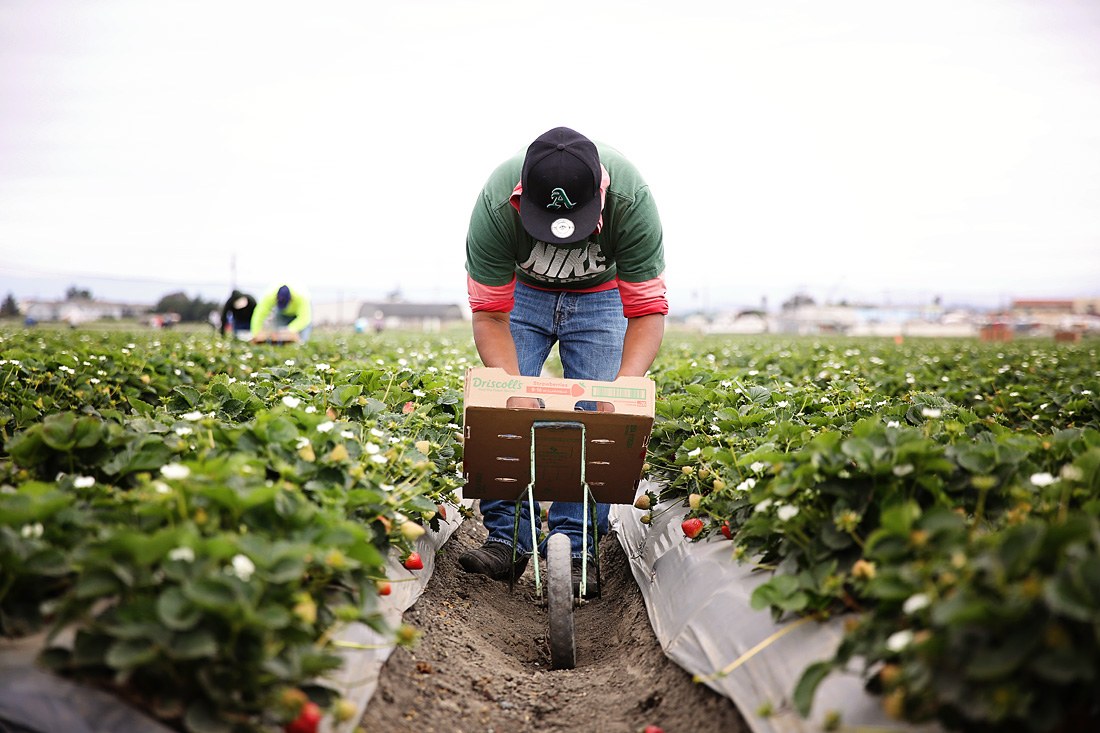



1 Comment
Jodi Reinman
July 12, 2017 at 11:30 amHey Vamessa,
I’m so glad you were able to attend. It was a true pleasure getting to know you. I was touched by your writing and your insight. xo Jodi